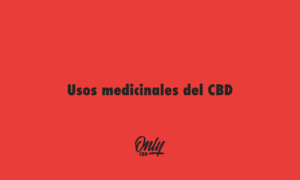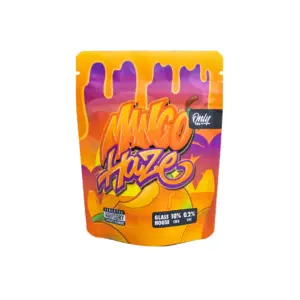During the week of October 23, 2021, Spain missed a significant opportunity to draft a law regulating the use of cannabis for therapeutic and recreational purposes. The PSOE, PP, and Vox voted against the Más País bill. This decision does not affect the other major cannabis business, which is just beginning to take off in Spain and is worth $2 billion in the US.
We're talking about the business of cannabidiol, commonly known as CBD. It's one of the cannabinoids found in the Cannabis sativa plant and is non-psychoactive. That is, it doesn't get you high, alter your consciousness, or cause dependency. It's used to treat chronic pain, insomnia, and anxiety, among other ailments.
It's a legal business in many countries, including Spain. This is mainly due to two reasons: the lack of specific regulations and the European requirement that cannabis contain less than 0.2% of tetrahydrocannabinol (THC), the compound that causes the psychoactivity for which cannabis is famous. Its cultivation, for example, is not permitted. But its commercialization is.
However, companies in the sector claim they are in "a kind of legal vacuum." In Spain, CBD products are only marketed as cosmetics or industrial products, even though in many cases they are considered dietary supplements, they explain.
Furthermore, a 2020 ruling by the Court of Justice of the European Union (CJEU) endorses its marketing. It clarifies that the marketing of CBD, a product legally manufactured and marketed in other Member States without sufficiently proven health risks, cannot be prohibited.
Industry in Spain
This unknown business in our country is beginning to grow through street-level companies that sell this cannabis derivative in two forms: either as a cosmetic product (creams and oils) or as an ingestible product (flowers and oils, too).
The latter is the most sought-after by consumers, according to Jorge Durán, founder of Serenity, a premium CBD oil company that was born in the midst of the Covid pandemic and in the heat of the boom in this new industry.
Tía María is one of the businesses that sells CBD hemp flowers. It currently has 33 franchises open in Spain, the vast majority in the north of the country, and they have become the best example of the boom in this business. "Two months ago, we only had five franchises. Now there are 33, and we have 15 more pending," Daniel and José, the company's founders, told EL ESPAÑOL-Invertia.
It's also becoming common to hear television commercials for some of these companies. This is the case with Laboratorios Naturasor, which is emerging as the leading Spanish company in the processing of cannabis for therapeutic purposes. It develops the Origin line of cosmetic and medicinal products, among others. These products are gaining popularity among elite athletes.
Companies in this industry defend the medicinal properties of CBD: it's anti-inflammatory, antioxidant, neuroprotective, and contributes to psychophysical relaxation. And most warn that these products are not intended to replace any medical treatment.
Business in the USA
In Spain, this business is still in its infancy, although interest is growing. "Spain is lagging behind many countries. There are more than 40 countries where it's regulated, and in Germany it's even found in gas stations," says Jorge Durán.
It's true that it's more established in other countries. For example, in the US, it already moves more than $2 billion and is expected to reach $20 billion by 2025, according to the cannabis consulting firm BDSA.
In fact, it's such a booming industry that companies and personalities have jumped on the CBD bandwagon. First and foremost is Moolson Coors, the multinational brewer that operates La Sagra in Spain. It has entered a CBD beer business with another company and is already present in 17 US states. Even Coca-Cola considered entering the CBD beverage segment.
In the second case, the examples are more abundant. Justin Bieber announced that he's investing in pre-rolled joints he calls "Peaches," the name of a song on his most recent album. And Gwyneth Paltrow and Rosario Dawson are participating in the THC-infused beverage manufacturer Cann.
Political opportunity
Returning to the bill being debated in Congress, the Spanish Observatory of Medicinal Cannabis believes it is urgent to regulate the medical use of cannabis. First, for the patients who need it, and second, because of the emergence of a black market that flouts the law.
"Regulating this market, from an economic perspective, means creating jobs and raising money in the form of taxes," says Cristina Sánchez, spokesperson and professor of Biochemistry and Molecular Biology at the Complutense University of Madrid.
Although the observatory isn't throwing in the towel. Despite knowing that Spain is far behind other countries in this type of regulation, they believe that our country will eventually approve regulations for the therapeutic use of cannabis based on the "scientific evidence" that exists.
The list of countries approving regulations in this regard continues to grow. The latest is Costa Rica, which has given the green light to legalize the use of cannabis for medicinal and therapeutic purposes and hemp for food and industrial purposes.
Perhaps Spain will join in later. But in the meantime, the cannabis business that doesn't get you high continues to grow in our country.

























